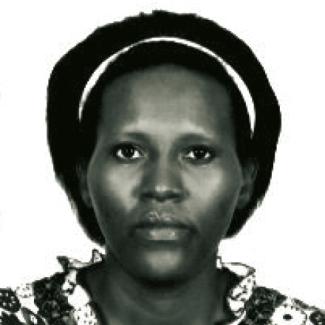Border closure
Political decision causing human suffering
 StepMap
StepMap
The border between Burundi and Rwanda was only reopened in October 2022 after being shut for around seven years. In 2015, Burundi had accused Rwanda of supporting protests and an attempted coup. The renewed border closure shocked both Burundians and Rwandans.
Burundian Generose Nshimirimana lives in Rugombo, Cibitoke Province, which is separated from Rwanda by the Ruhwa River. Until recently, she regularly travelled back and forth between the two countries to sell tomatoes at a market in Rwanda. She is furious about the border being closed: “It’s impossible! Where am I supposed to sell my harvest and how will I pay for my children’s schooling?” She urges the two governments to settle their differences and reopen the land border.
Dévote feels the same. She lives in Busiga, a commune in Ngozi Province in the north of Burundi. The mother of three children is married to a gold prospector. She lives from selling red onions in Rwanda. Dévote can sell three times as much produce there as in her hometown. She fears that the border closure will make life harder.
On the day the land border was sealed, 11 January 2024, Rwandans with appointments in Burundi and Burundians who had travelled to Kigali for healthcare found themselves stuck. In the afternoon, those affected were given special permits to return across the border.
The tensions between Burundi and Rwanda go back decades. In 1994, when Rwanda was shaken by the atrocious civil war between Hutu and Tutsi, a Burundian president died in a plane crash on Rwandan soil. In the years that followed, various towns and villages in Burundi were attacked by rebel groups, which Gitega always linked to Kigali. Rwanda denied the allegations.
The East African Community – which counts both Burundi and Rwanda among its members – as well as politicians and international-relations experts are calling on the two governments to engage in dialogue in both countries’ interests. “The consequences of the border closure are dramatic. It spreads fear among the people living in border areas and reduces trade. It also has impacts on social ties between the two nations that cannot be ignored,” explains Pascal Niyonizigiye, Professor of International Relations at the University of Burundi.
Mireille Kanyange is a journalist with Radio Isanganiro in Burundi.
mika.kanyange@gmail.com


